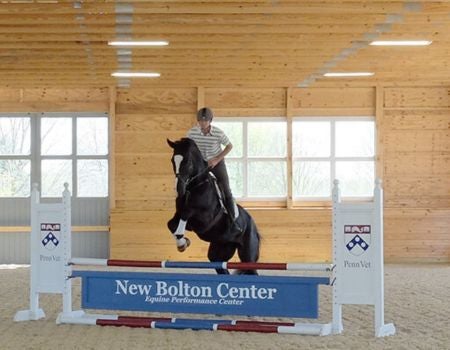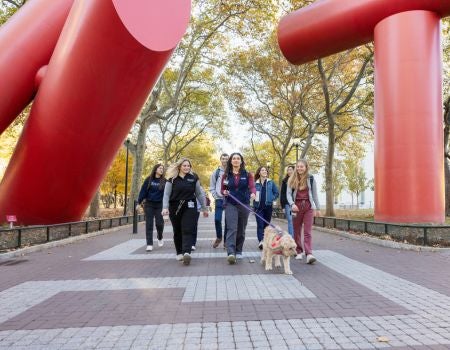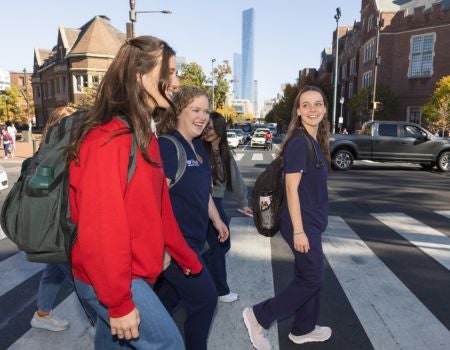Campuses
By the numbers
Campus Stats
Acres in Chester County
New Bolton Center
Patients at local farms
New Bolton Center Field Service
Largest city in the U.S.
Philadelphia
Small-animal patients
Philadelphia
Urban and Rural
Our Campuses
Penn Vet has two campuses, one urban and one rural, where students can gain comprehensive knowledge in veterinary medicine. From the tiniest exotic animals to larger ones such as horses, cattle, swine, and camelids, students can learn about a wide range of species. The two hospitals are famous worldwide for their large caseloads and are known for providing veterinary care to various animals, including companion, sport, agriculture, avian, and exotic animals.



New Bolton Center
Rural Campus
Located in Kennett Square, Pennsylvania, on 700 picturesque acres in Chester County, Penn Vet’s New Bolton Center Campus, established in 1952, offers exceptional veterinary services for large animals such as horses, cattle, pigs, goats, and sheep. The campus is home to the world-renowned Hospital for Large Animals, which opened in 1964 and is known for its exceptional standard of care. The hospital is one of the top academic large animal hospitals in the U.S., and it provides inpatient and outpatient services, treating over 6,300 patients annually. Additionally, the equine and food animal Field Services have performed over 5,500 service calls, treating more than 22,400 patients at local farms.
We strive to provide the finest in both emergency and routine veterinary patient care for all species of large animals, to strive to better understand animal disease processes, and to be leaders in the area of animal health and productivity for the betterment of society.
Philadelphia Campus
A City Within A City
The Philadelphia campus of Penn Vet houses the Ryan Veterinary Hospital for companion animals. The hospital is a popular veterinary teaching hospital that sees more than 30,000 small-animal patient visits annually, and the Emergency Service, which is open 24/7, handles around 9,000 of those visits.
Additionally, Penn Vet has a variety of resources and facilities for comprehensive biomedical research that are shared with the University of Pennsylvania. Penn is one of the few universities that have professional schools in veterinary medicine, medicine, dentistry, and nursing on a single campus.
Our world-renowned faculty are committed to educating veterinary leaders of the future. Their academic backgrounds works to our students’ advantage – their varied and unique perspectives bring a fullness to education. Visiting faculty, from institutions across the country and around the world, further enhance this experience.



